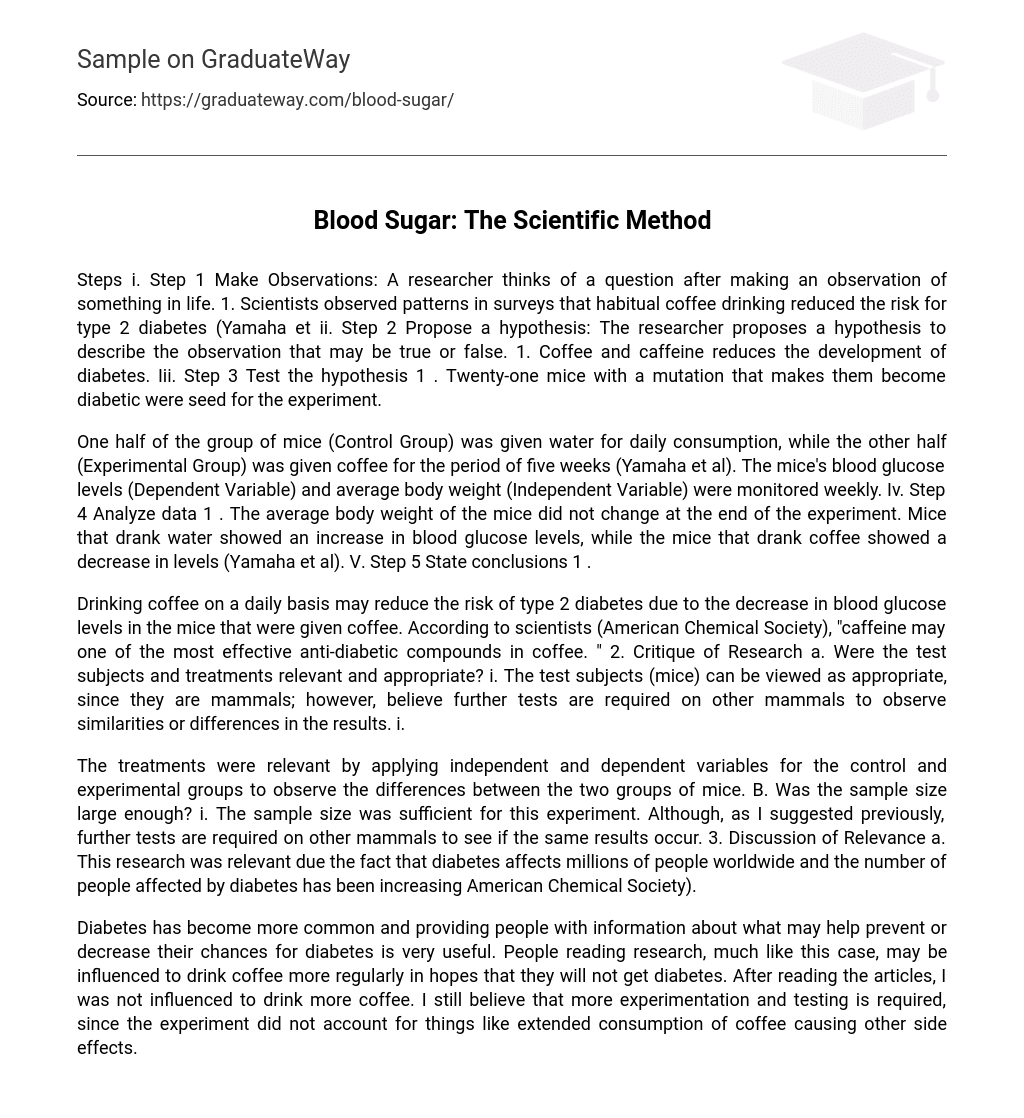Steps i. Step 1 Make Observations: A researcher thinks of a question after making an observation of something in life. 1. Scientists observed patterns in surveys that habitual coffee drinking reduced the risk for type 2 diabetes (Yamaha et ii. Step 2 Propose a hypothesis: The researcher proposes a hypothesis to describe the observation that may be true or false. 1. Coffee and caffeine reduces the development of diabetes. Iii. Step 3 Test the hypothesis 1 . Twenty-one mice with a mutation that makes them become diabetic were seed for the experiment.
One half of the group of mice (Control Group) was given water for daily consumption, while the other half (Experimental Group) was given coffee for the period of five weeks (Yamaha et al). The mice’s blood glucose levels (Dependent Variable) and average body weight (Independent Variable) were monitored weekly. Iv. Step 4 Analyze data 1 . The average body weight of the mice did not change at the end of the experiment. Mice that drank water showed an increase in blood glucose levels, while the mice that drank coffee showed a decrease in levels (Yamaha et al). V. Step 5 State conclusions 1 .
Drinking coffee on a daily basis may reduce the risk of type 2 diabetes due to the decrease in blood glucose levels in the mice that were given coffee. According to scientists (American Chemical Society), “caffeine may one of the most effective anti-diabetic compounds in coffee. ” 2. Critique of Research a. Were the test subjects and treatments relevant and appropriate? i. The test subjects (mice) can be viewed as appropriate, since they are mammals; however, believe further tests are required on other mammals to observe similarities or differences in the results. i.
The treatments were relevant by applying independent and dependent variables for the control and experimental groups to observe the differences between the two groups of mice. B. Was the sample size large enough? i. The sample size was sufficient for this experiment. Although, as I suggested previously, further tests are required on other mammals to see if the same results occur. 3. Discussion of Relevance a. This research was relevant due the fact that diabetes affects millions of people worldwide and the number of people affected by diabetes has been increasing American Chemical Society).
Diabetes has become more common and providing people with information about what may help prevent or decrease their chances for diabetes is very useful. People reading research, much like this case, may be influenced to drink coffee more regularly in hopes that they will not get diabetes. After reading the articles, I was not influenced to drink more coffee. I still believe that more experimentation and testing is required, since the experiment did not account for things like extended consumption of coffee causing other side effects.





